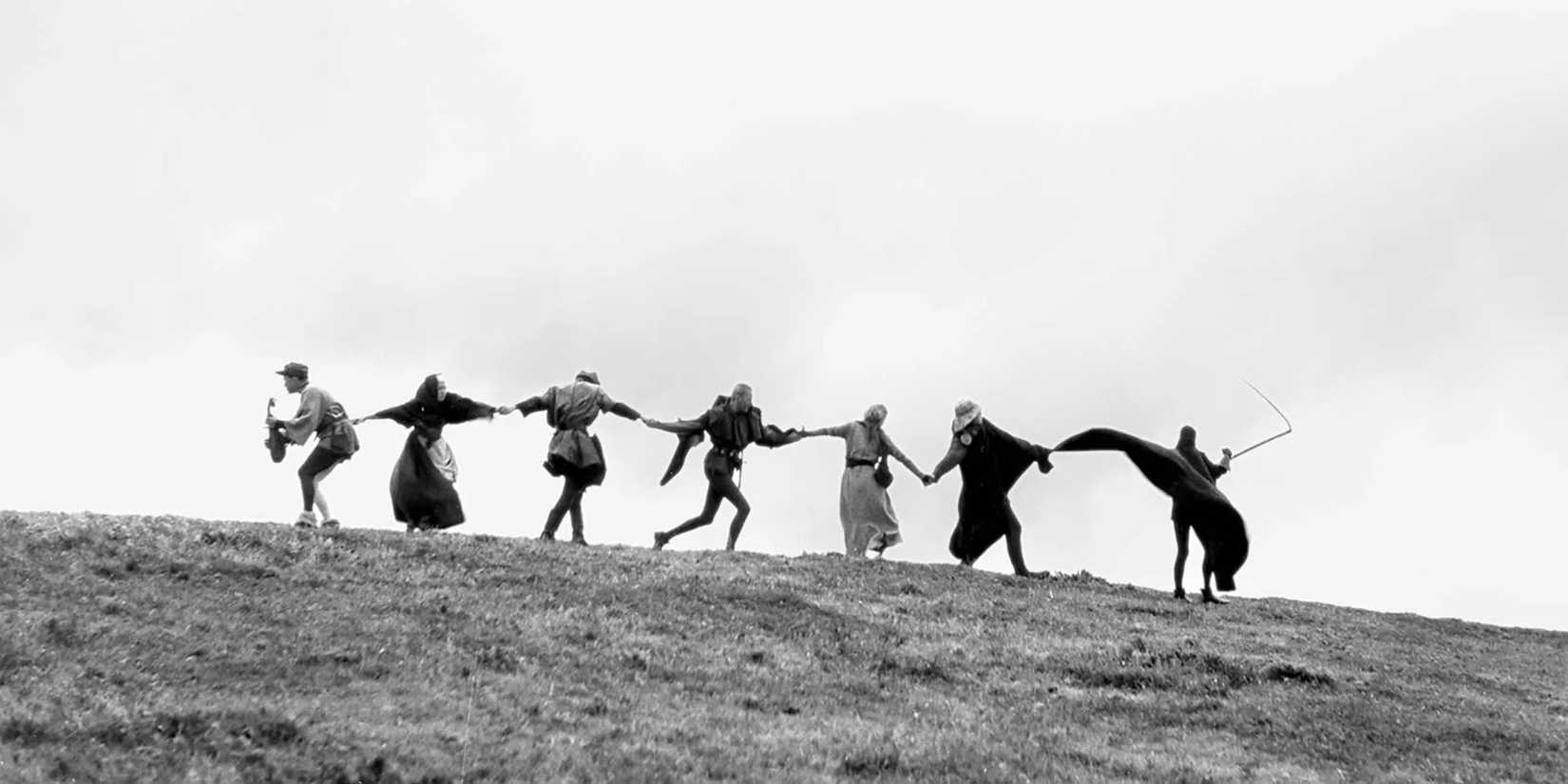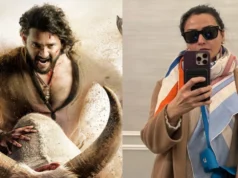Few filmmakers in history have left as profound a mark as Ingmar Bergman. Across four decades, the Swedish master crafted intimate, devastating explorations of the human condition that were as confrontational as they were thought-provoking. He used intense stories and striking images to engage with the most challenging ideas.
Bergman’s style was stark yet lyrical, and his collaborations with actors like Liv Ullmann, Max von Sydow, and Bibi Andersson produced some of the greatest performances ever captured on film. For all these reasons, Bergman’s work is still studied, worshipped, and continually rediscovered. The titles below are Ingmar Bergman’s crowning achievements, profound movies that left a lasting impact on cinema. They will be ranked based on how meaningful they are and their overall qualities as individual works of cinematic art.
10
‘Summer with Monika’ (1953)
“Life isn’t so simple. You can’t just run away from it.” Early in his career, Bergman made Summer with Monika, which shocked audiences of the time with its sensuality. The story follows young lovers, Monika (Harriet Andersson) and Harry (Lars Ekborg), who spend a carefree summer together in the Stockholm archipelago. It’s meant to be an escape from the grind of their lives, but what begins as a sunlit idyll slowly curdles into disillusionment. Try as they might to ignore them, the realities of adulthood, poverty, and responsibility stubbornly intrude.
While the film’s frank depiction of youthful sexuality scandalized censors, its real power lies in its emotional depth. It’s an honest story about fleeting passion and the inevitability of change, a bittersweet coming-of-age tale. Much of its success is owed to Harriet Andersson. Her performance as Monika is astonishing: vulnerable, magnetic, and defiantly modern. Her direct gaze into the camera, a moment of startling intimacy, still feels radical today.
9
‘Hour of the Wolf’ (1968)
“The old ones dream nightmares no one else dares to.” Hour of the Wolf is Bergman’s only true horror movie. According to the director, the title refers to “the hour between night and dawn […] when most people die, sleep is deepest, nightmares are most real.” Here, Max von Sydow plays Johan Borg, an artist plagued by insomnia, visions, and paranoia, while Liv Ullmann is his devoted wife Alma, who becomes both witness and participant in his unraveling. Through these characters, the film explores the terrors of the subconscious, filled with grotesque imagery, including leering aristocrats and disturbing creatures.
A sense of dread permeates every frame. Shot in stark black-and-white, Hour of the Wolf is both a psychological portrait and a gothic horror. It’s a chilling exploration of the fragility of the mind, especially the anxieties of creativity and isolation. Its ambiguity and surreal elements lend themselves to endless interpretation, with many seeing it as Bergman’s commentary on himself as an artist.
8
‘Autumn Sonata’ (1978)
“A mother and a daughter. What a terrible combination of feelings and confusion.” One of the best movies of the ’70s, Autumn Sonata is one of Bergman’s most emotionally devastating films, powered by the towering performances of Ingrid Bergman (in her only collaboration with the director) and Liv Ullmann. The story centers on a fraught reunion between a famous pianist mother and the daughter she neglected. Over a single night, decades of resentment, longing, and unspoken pain come pouring out. The dialogue is searing, but it’s the silences, the moments of hesitation and the words unsaid that cut deepest.
Bergman directs this chamber piece with a style that’s fittingly intimate, claustrophobic, and unflinching. The close-ups feel like psychological X-rays. The conversation becomes a meditation on motherhood, art, and emotional neglect. All in all, Autumn Sonata proves that the director could create suspense and devastation not through spectacle but through the simple, terrifying act of two people speaking their truth.
7
‘The Virgin Spring’ (1960)
“You saw it! The death of an innocent child and my vengeance.” The Virgin Spring is one of Bergman’s darkest tales, a medieval fable of innocence, violence, and revenge. It focuses on a devout Christian family whose daughter (Birgitta Pettersson) is brutally assaulted and murdered, only for her killers to unwittingly seek shelter in the home of her parents. What unfolds is both horrifying and morally charged, as the father (von Sydow) wrestles with his grief, faith, and desire for vengeance.
The film’s stark imagery and brutal themes influenced countless filmmakers, most notably Wes Craven, who reworked it into the notorious The Last House on the Left. Yet Bergman’s approach is more spiritual than exploitative, interrogating the tension between Christian forgiveness and primal justice. The final image, of a spring of water bubbling from the ground where the girl died, offers grace amidst horror. Not for nothing, the film took home that year’s Oscar for Best Foreign Language Film.
6
‘Scenes from a Marriage’ (1973)
“We talk so much about freedom. But when it comes down to it, we choose slavery.” Originally a miniseries and later condensed into a feature, Scenes from a Marriage is Bergman’s most piercing exploration of relationships. Starring Liv Ullmann and Erland Josephson, the film follows Marianne and Johan over the years as their relationship unravels, reforms, and evolves through infidelity, separation, and lingering connection. Once again, Bergman’s script is brutally honest, filled with long, intimate dialogues, defined by tenderness as well as cruelty.
The stars are handed challenging roles to play, and they rise to the occasion with extraordinary work. Ullmann and Josephson inhabit their characters with such rawness that their pain feels almost unbearable to watch. They feel like real people, even as their struggles touch on universal themes. All these elements add up to a timeless, compassionate movie about how people hurt and heal each other.
5
‘Cries and Whispers’ (1972)
“It’s so strange to see someone dying so serenely.” Cries and Whispers centers on three sisters, Agnes, who is dying of cancer, and her estranged siblings Karin and Maria, as they confront old wounds, jealousy, and guilt. The film is a chamber piece of grief, memory, and spiritual yearning, elevated by the brilliant performances of Liv Ullmann, Ingrid Thulin, and Harriet Andersson. Through them, the film interrogates the nature of suffering and whether solace can be found in love and faith. The shadow of mortality looms over the whole affair.
It’s also one of Bergman’s most visually striking and emotionally devastating films, drenched in blood-red hues that symbolize both life and death. The director’s use of color is revolutionary: the saturated interiors create a suffocating atmosphere, making the audience feel trapped within the characters’ anguish. Unrelenting in its emotional power, Cries and Whispers manages to be both bleak and transcendent.
4
‘Fanny and Alexander’ (1982)
“I want to live in my own world, with my own truths.” Bergman’s final theatrical film, Fanny and Alexander, is simultaneously a summation of his career and a monumental achievement in its own right. Originally made as a five-hour television miniseries, it’s a sprawling family saga that blends memory, autobiography, and fantasy. Set in early 20th-century Sweden, the film follows the Ekdahl children as they navigate joy, tragedy, and the oppressive rule of their cruel stepfather, a bishop. The one oscillates between warmth and terror.
The film succeeds both on a technical level and a philosophical one. It stuns visually with its lavish production design and luminous cinematography, while its themes cover all of Bergman’s preoccupations: family, art, spirituality, and cruelty. As a result, Fanny and Alexander is both epic and intimate, grounded and magical, bleak and life-affirming, its creator’s filmography in microcosm. It rightly won four Academy Awards.
3
‘Wild Strawberries’ (1957)
“It’s terrible to know so little and yet so much at the same time.” Wild Strawberries is one of Bergman’s most beloved films, a lyrical journey into memory and regret. Victor Sjöström, a legendary silent filmmaker, delivers a moving performance as Professor Isak Borg, an aging academic who reflects on his life during a road trip to receive an honorary degree. Along the way, dreams and memories intertwine with present encounters, forcing him to confront his failures, disappointments, and lost loves.
Wild Strawberries is Bergman’s most poignant meditation on aging, suggesting that it’s never too late to find peace. At its heart, the film is about reconciliation: with the past, with loved ones, and with the inevitability of death. The story is gentle yet profound, balancing melancholy with moments of beauty and warmth. In terms of the visuals, the dream sequences, including haunting images of clocks without hands, deserted streets, and coffins, rank among Bergman’s most iconic.
2
‘Persona’ (1966)
“We act a part in order to be loved, don’t we?” Persona is perhaps Bergman’s most enigmatic film, a radical exploration of identity, intimacy, and the porous boundary between self and other. Liv Ullmann is phenomenal as Elisabet, an actress who suddenly stops speaking, while Bibi Andersson plays Alma, the nurse assigned to care for her. As they spend time together in isolation, their identities seem to merge, blur, and fracture. Their intertwined stories become a psychological labyrinth that defies easy explanation.
Persona unsettles as much as it enlightens. The stark cinematography captures every flicker of the leads’ emotions, while Bergman’s daring aesthetic experimentation, like sudden flashes of film stock burning, overlapping images, and fractured sound, pushes the film into the foothills of the avant-garde. For this reason, Persona is endlessly debated and interpreted, and it remains one of the most influential works of modern cinema.
1
‘The Seventh Seal’ (1957)
“I want knowledge! Not faith, not assumptions. Knowledge!” No image in cinema is more famous than the knight playing chess with Death in The Seventh Seal. Here, Bergman uses medieval allegory to comment on mortality, faith, and the search for meaning in a world haunted by suffering. Max von Sydow plays Antonius Block, a disillusioned crusader seeking truth, while Bengt Ekerot‘s Death, calm, pale, inevitable, is one of the most chilling presences in film history.
The movie wrestles with the toughest of concepts, particularly the “silence of God.” Yet amidst its bare imagery and heavy themes, The Seventh Seal finds tenderness in the traveling actors and the small joys of life. In other words, Bergman balances the cosmic with the human, looking for consolations even amid the existential dread. It’s a film that crystallizes his genius: philosophical yet accessible, grim yet profoundly beautiful. One of cinema’s eternal masterpieces, forever engraved in the collective imagination.



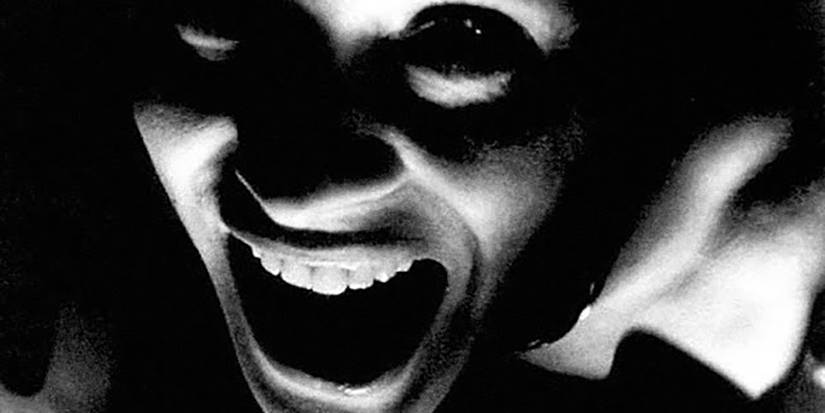

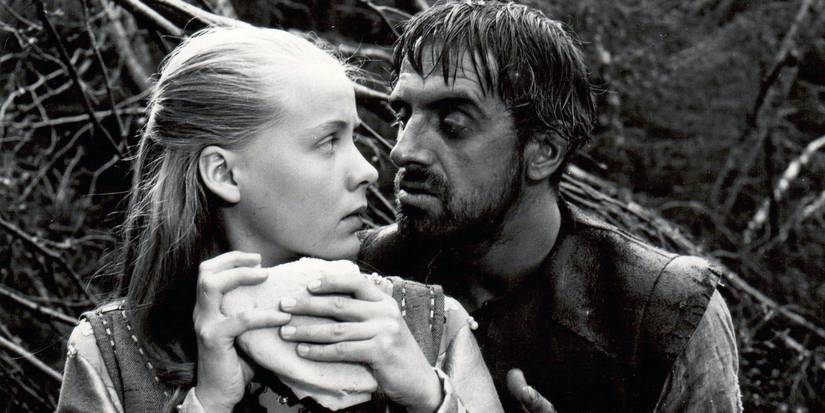
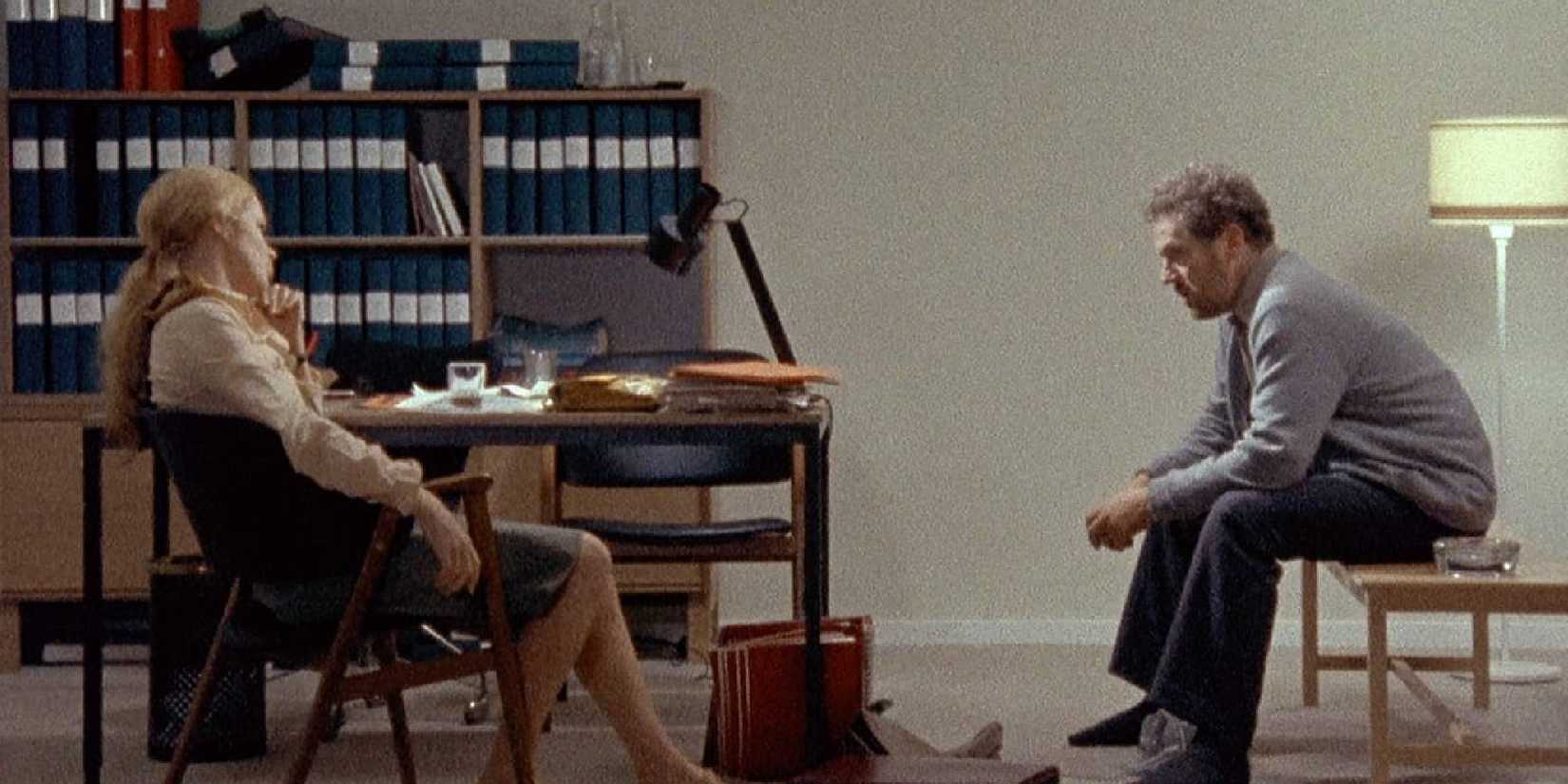
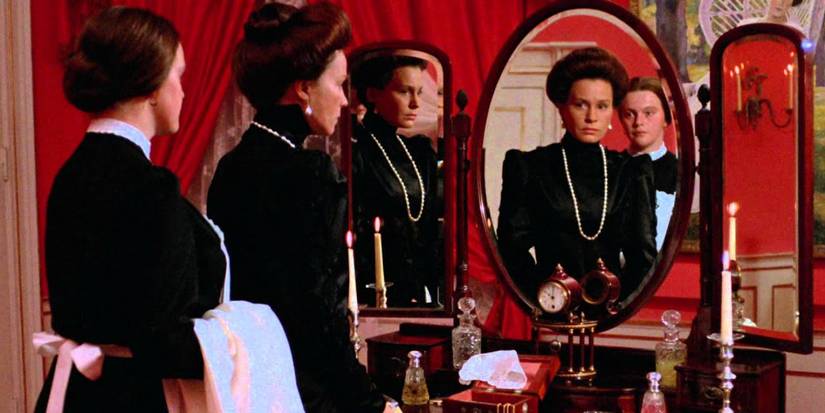
.jpg?q=49&fit=crop&w=825&dpr=2)
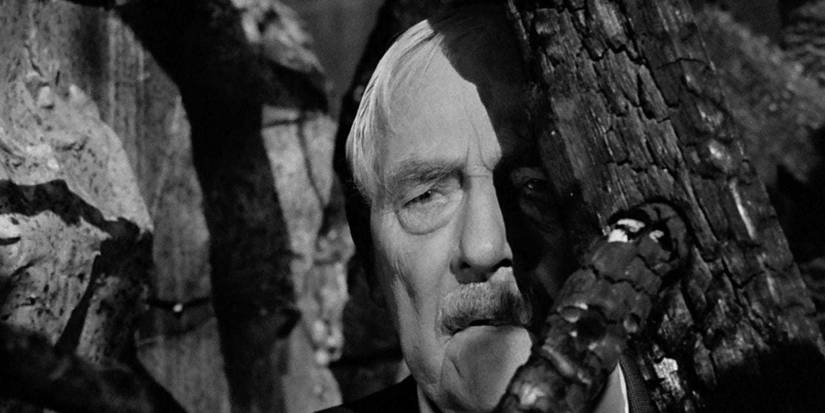
.jpg?q=49&fit=crop&w=825&dpr=2)
